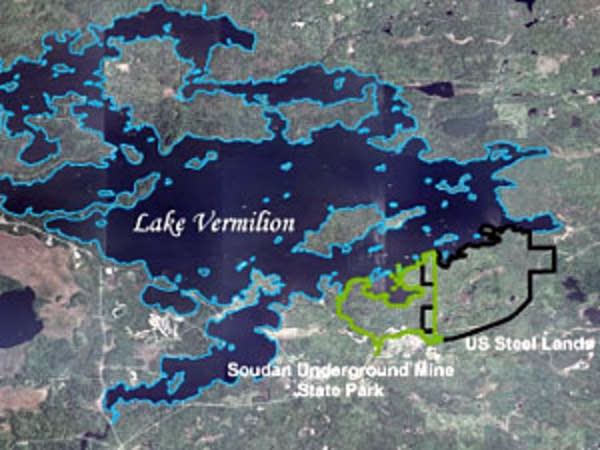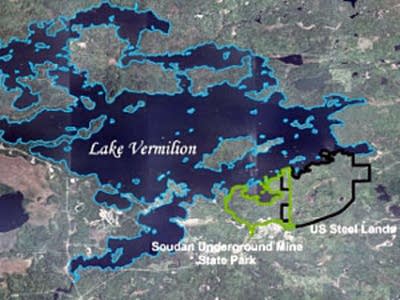New state park caught up in politics, money troubles
Go Deeper.
Create an account or log in to save stories.
Like this?
Thanks for liking this story! We have added it to a list of your favorite stories.

U.S. Steel owns large tracts of land on the Iron Range. A couple of years ago the company presented plans for an upscale development near Tower, on Lake Vermilion. It's a big lake with clear water and stunning views from its rugged shoreline.
Last July Gov. Pawlenty announced he was negotiating to buy the property and turn it into what he predicted would be one of the "most beautiful state parks in the country."
The negotiations are still going on. The DNR's Bob Meier told legislators Tuesday the agency may not know for two more months what the price might be.
"Our agreement with United States Steel that we entered into last summer gave us until March 15th to come up with a negotiated price," Meier said. "We've extended that deadline that by 60 days, so now we have until about the same time as session is over to come up with that negotiated agreement."
Turn Up Your Support
MPR News helps you turn down the noise and build shared understanding. Turn up your support for this public resource and keep trusted journalism accessible to all.
The governor wants the money to come from the Environment and Natural Resources Trust Fund -- that's the lottery money dedicated to environmental projects.
"Whether it's out of (the Environmental Trust Fund) or the general fund or bonding, as long as it gets done, it doesn't matter to me."
The DNR submitted a request for Trust Fund money last fall. But the request was unprecedented: it proposed a 20-year commitment to pay off bonds to acquire the Lake Vermilion land and other land around the state. The trust fund normally pays cash. The committee that administers it -- the Legislative-Citizen Committee on Minnesota Resources or LCCMR -- unanimously rejected the DNR's request.
The governor this week continued to push the trust fund as the best source of funding.
"We think in light of the purpose and mission of the Environmental Trust Fund, that's a good use of that money, an appropriate use of the money," Pawlenty said. "Many legislators agree. But whether it's out of that or the general fund or bonding, as long as it gets done, it doesn't matter to me."
But the trust fund bill is well along in the legislative process, and it doesn't include the state park.
Senate environment committee chair Ellen Anderson, DFL-St.Paul, says the park should be in the bonding bill, but she says it's hard to include it because of the tight economic times.
"The governor wants us to cut our bonding bill significantly, by another 100 million or so," she said. "But at the same time he wants us to pay for all his pet projects, and you really can't have it both ways."
And there's another bump in the road. A couple of northeastern Minnesota legislators want the state to agree to a land swap if the property on Lake Vermilion is set aside for a park.
One of them is Rep. David Dill, DFL-Crane Lake. His district includes Lake Vermilion. He says 60 percent of the land in St. Louis County is already publicly owned.
"We've done our part in providing public land for future generations, and we're willing to consider this particular proposal as long as there are some mitigations," he said. "And we think it's important that people in the Twin Cities and across the state who would love to have that park put some skin in the game over and above just the money to buy it."
Dill wants the DNR to find the same number of equally beautiful acres, owned by the state, within St. Louis County, and sell it off to private owners so the local governments won't lose out on tax revenue.
That tax question is real for Tim Tomsich. He's a township supervisor for Breitung Township, which includes Lake Vermilion.
If the U.S. Steel land were developed, the high-end homes would pay good taxes. On the other hand, Tomsich says a state park could bring more people, and not just wealthy people, to the area.
"They're certainly going to be spending money at the grocery store and gas stations," he said. "And who knows -- over the years maybe some of those folks may even like it so much they're going to move up to this area."
Barring any unexpected agreement between legislators and the governor on money issues anytime soon, a state park on Lake Vermilion may be one of those things that eventually owes its life to last-minute horse-trading that goes on before the legislative session is over.




